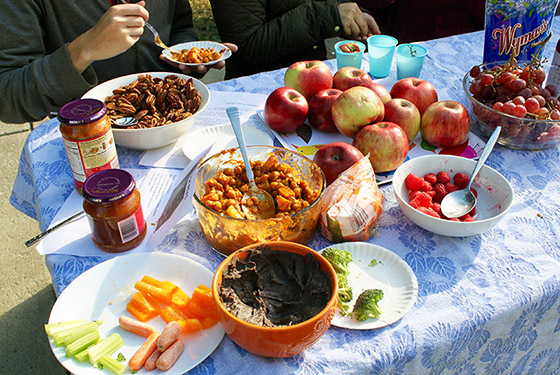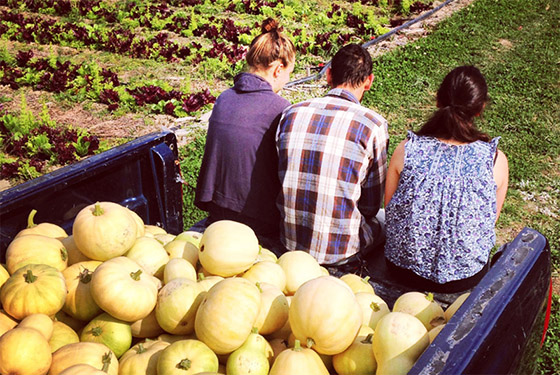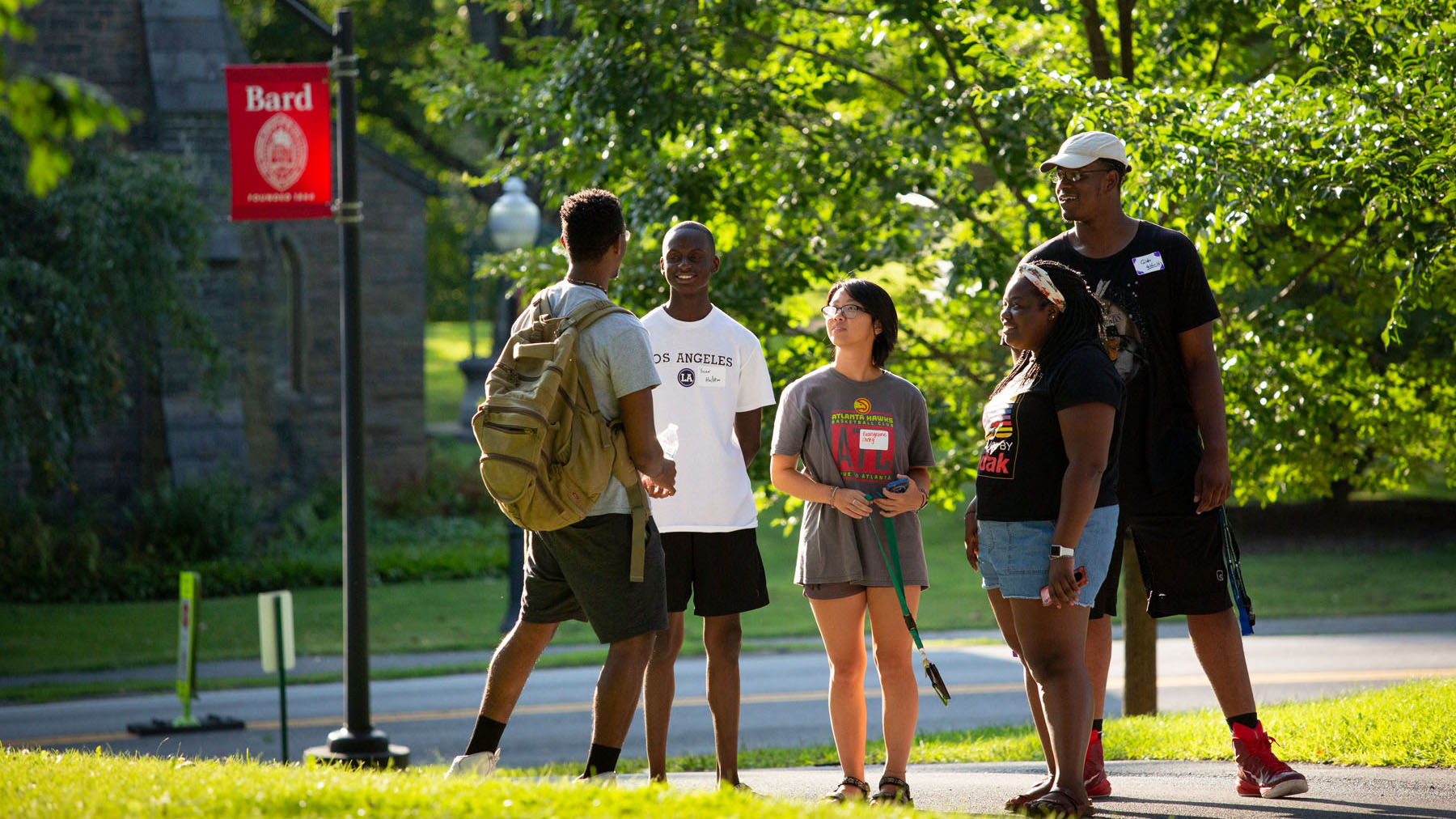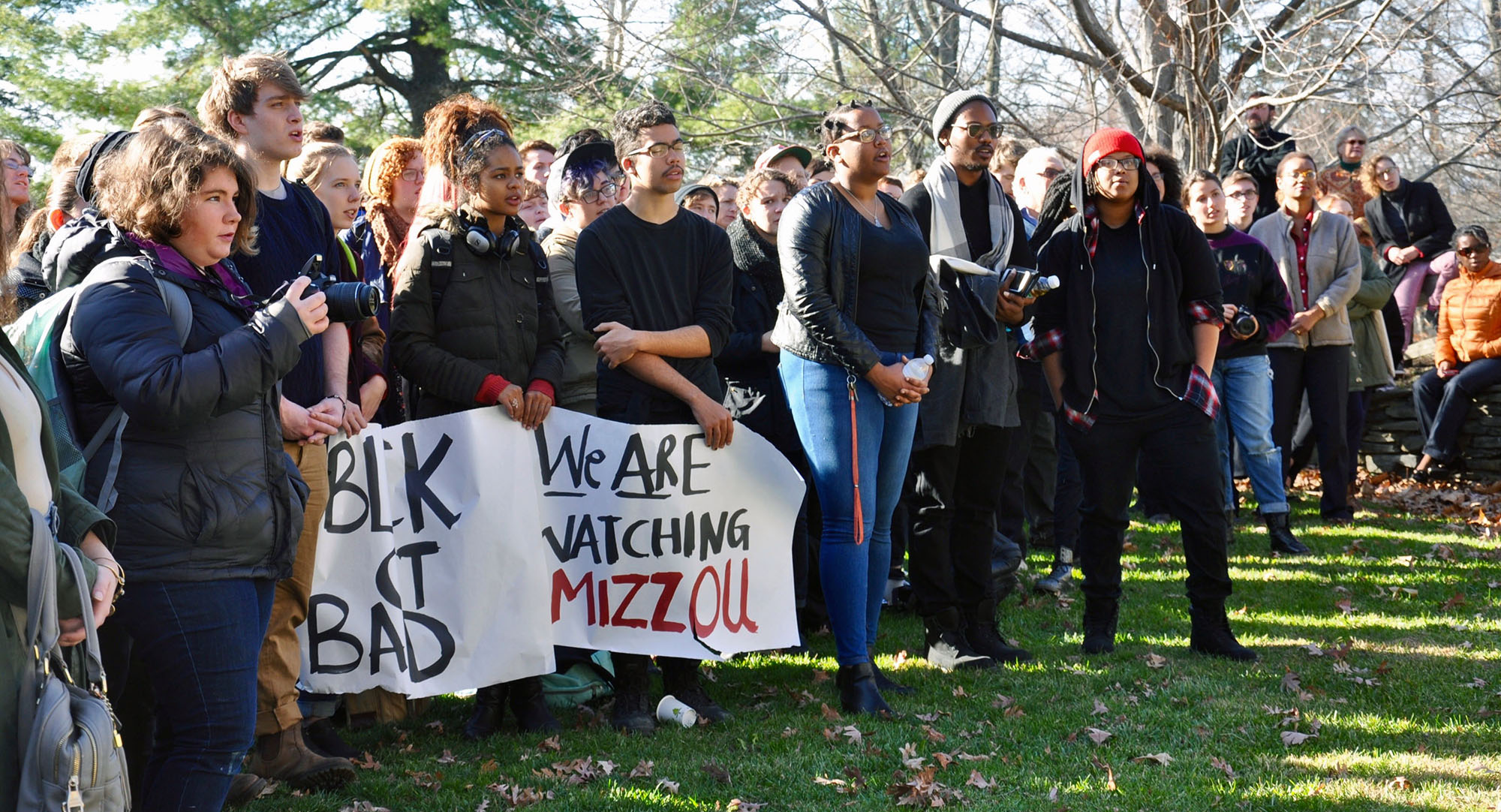The History of BardEATS
In 2008, Bard College committed to purchasing sustainable food and supporting local producers and farmers. This commitment began as a relationship between Bard’s dining services and Old Saw Mill Farms, which brought local Hudson Valley stone fruits, produce, and proteins to campus. In 2009, Bard created another local relationship with the dairy cooperative Hudson Valley Fresh. Also that year, Bard removed its trays from the dining hall to save water, food waste, and energy. From 2009 to 2010, campus local produce purchases increased by 30 percent. In 2010, Bard’s dining services introduced 100 percent compostable disposable wares and added locally produced juices and ciders to the on-campus grocery store, the Green Onion Grocer. In 2010, the Bard Community Garden expanded to hire John-Paul Sliva, who would go on to become director of the Bard Farm.
In 2012, the College’s president, Leon Botstein, agreed to donate $40,000 dollars from the school’s funds to create a farm on campus if students could raise $25,000 for the project in three weeks. Carter Vanderbilt ’15 organized a Kickstarter campaign to fund the Bard Farm and the goal was successfully reached. Later that year, the 1.25-acre Bard Farm broke ground under the leadership of Paul Marienthal, farm director, and John-Paul Sliva, farm coordinator. The first year yielded 6,045 pounds of local, fresh, organically grown veggies that were served to the Bard Community. The farm is currently operated by student labor and sells its yields directly to Bard Dining Services.
In March 2013, President Leon Botstein signed the Real Food Challenge Commitment, pledging to dedicate 20 percent of purchasing to “real food” (food that is local/community-based, fair, ecologically sound, or humane as defined by the Real Food Challenge criteria) by 2020. In spring 2015, Bard reached an average of 21 percent purchasing of Real Food, beating the goal five years early, and by 2019 Bard reached 27 percent Real Food. BardEATS also started in 2013 by a student named Amelia Goldstein.
Bard Dining Services has purchased from many Hudson Valley producers over the years, including Bread Alone, Hudson Valley Fresh, Winter Sun Farms, Purdy & Sons, Feather Ridge Farm, Wild Hive Farm, and Red Barn Produce, to name just a few. Bard Dining continues to seek out local and sustainable products and providers.
In 2020, COVID-19 did not stop BardEATS from creating programs and continuing to reach sustainability and equity goals. Bard gained a new dining service, Parkhurst Dining, which has worked with BardEATS since day one to provide sustainable and local food to students, facilitate pre-consumer and post-consumer composting in dining locations, and work to find new local and/or BIPOC producers for Bard to buy from. BardEATS celebrated another year of Campus Crunch where local apples were enjoyed, as well as creating a new Family Food Share program where students who were not able to go home for break due to the pandemic could find meals in Kline that reminded them of home and partnering with Wellness at Bard and Parkhurst to increase food security for students over winter break.
BardEATS ended 2020 thinking about ways to do better and be better as students, faculty, employees, friends, and coworkers. In 2021 BardEATS committed to an anti-racism initiative where future and current programming would be focused on showing how interconnected sustainability work and anti-racism work is.
In 2021 BardEATS held a monthly anti-racism working group where students, faculty, and staff could come together to do the deep personal work of anti-racism work. BardEATS as well as Parkhurst Dining were able to join an Uprooting Racism Workshop with Soul Fire Farm to do more unlearning and relearning work. In Fall 2020 and Spring 2021 we raised $3,000 for the Kingston Land Trust, Land in Black Hands Fundraiser, to support Black land ownership in the Hudson Valley. BardEATS also held its first Earth Week Lecture Series in April of 2021, where food and racial justice organizers presented and led discussions for the Bard community. These speakers were Kenny Perkins from Seedshed, K Greene from the Hudson Valley Seed Company, Shaniqua Bowden from the Kingston Land Trust, Heather Bruegl from the Forge project, Nfamara Badjie from Ever-Growing Family Farm, and Alexander Wright from Blegacy Farm.
In Spring 2021, BardEATS was able to onboard a Black Woman Owned Nut Milk Vendor, Edenesque, to use our purchasing power to support BIPOC farms and distributors. Then in Fall of 2021 BardEATS started its Im/migrant and Farm Labor Rights Initiative. As a part of this initiative we got the opportunity to host Migrant Justice from Vermont as part of their Milk with Dignity Tour to support their work in protecting the rights of migrant farm laborers.
For Spring 2022, BardEATS plans on continuing to learn and relearn about the ways in which our food system often harms people and the planet. We also hope to have our second Earth Week Lecture Series focused on supporting and uplifting the work of im/migrant justice and farm labor rights organizations.



